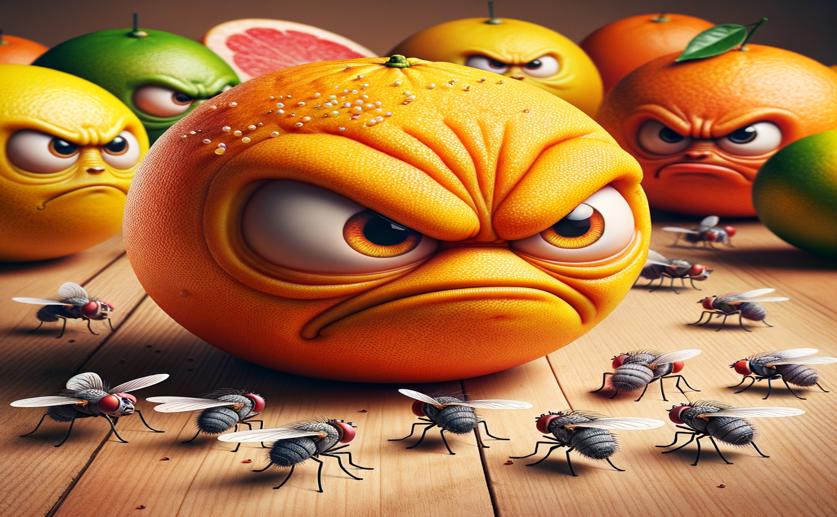
Citrus Fruits Defend Themselves against Fruit Fly Egg-Laying
Greg Howard
12th September, 2024

Image Source: Natural Science News, 2024
Key Findings
- Navel oranges activate defense responses when the insect Bactrocera minax lays eggs on them
- The oranges produce lignin and increase cell division to physically crush the insect eggs
- Plant hormones like jasmonic acid and salicylic acid are quickly induced to aid in the defense
References
Main Study
1) Citrus Fruits Produce Direct Defense Responses against Oviposition by Bactrocera minax (Diptera: Tephritidae).
Published 11th September, 2024
https://doi.org/10.1021/acs.jafc.4c05871
Related Studies
2) Oviposition by pierid butterflies triggers defense responses in Arabidopsis.
Journal: Plant physiology, Issue: Vol 143, Issue 2, Feb 2007
3) Perception, signaling and molecular basis of oviposition-mediated plant responses.



 26th July, 2024 | Jim Crocker
26th July, 2024 | Jim Crocker